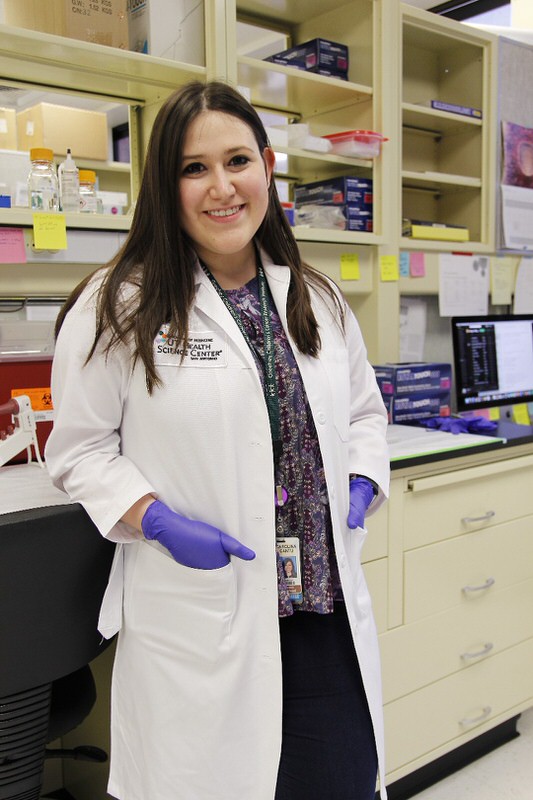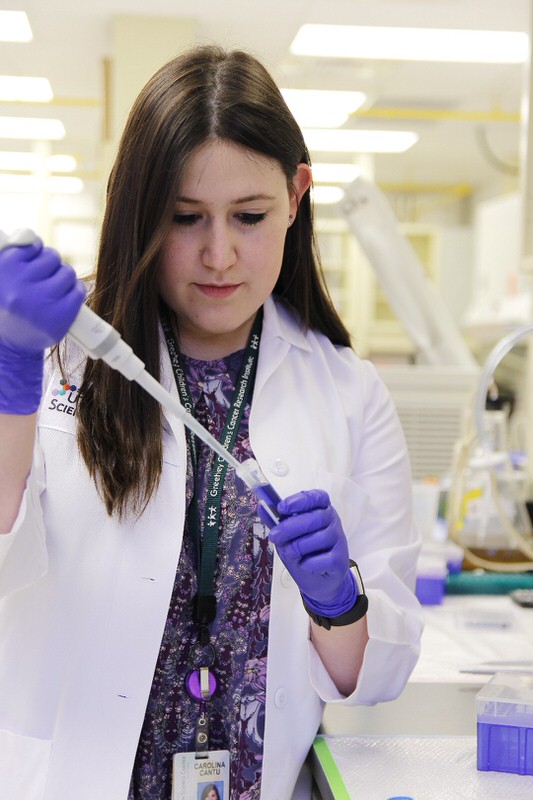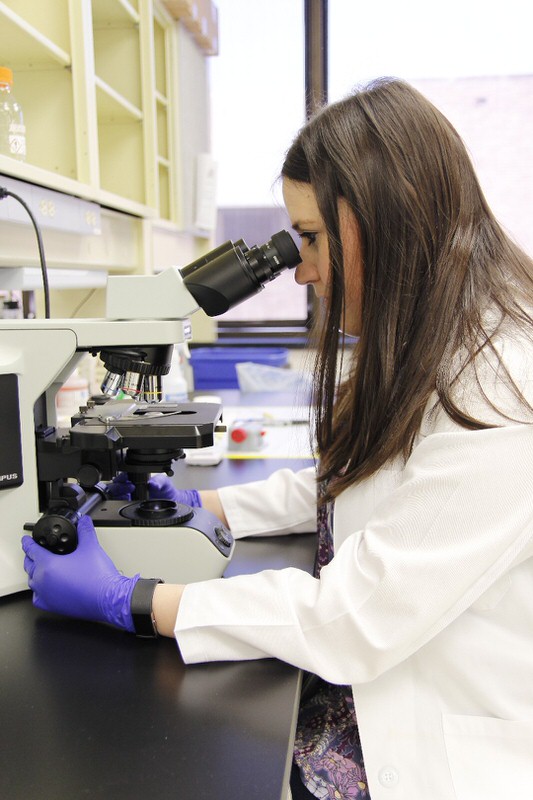Carolina Cantu: Aging Affects Each And Every One Of Us
 “At a very young age I developed a curiosity for how things worked. In particular, the human body and its ability to fight pathogens,” said second year M.S. in Immunology and Infection student Carolina Cantu.
“At a very young age I developed a curiosity for how things worked. In particular, the human body and its ability to fight pathogens,” said second year M.S. in Immunology and Infection student Carolina Cantu.
Cantu was born in Mexico and lived there until she was seven years old. She then moved to the Rio Grande Valley where she attended and graduated from The University of Texas Pan-American (now renamed The University of Texas Rio Grande Valley).
As an undergraduate student, she worked as a laboratory assistant in the Anatomy & Physiology, and General Biology laboratory courses at the University of Texas-Pan American and continued to teach for a year after she graduated.
“I realized I was passionate about science because I worked very long hours in order to help my students understand a difficult subject. But that didn’t matter to me because I was doing something I loved,” she said. “I really don’t see myself doing anything outside of science.”
Cantu was drawn to UT Health San Antonio because as an undergraduate student, she was visited our campus for a summer cancer research program.
“I really enjoyed my time here that summer. I met many great people and learned what it’s like to work in a research lab. Coming  from the Valley, it was great seeing all the resources and amazing facilities here at the South Texas Medical Center,” she said. “I fell in love with San Antonio and really liked the fact that it is only a few hours away from home.”
from the Valley, it was great seeing all the resources and amazing facilities here at the South Texas Medical Center,” she said. “I fell in love with San Antonio and really liked the fact that it is only a few hours away from home.”
She was attracted to the master’s program because of her interest in immunology and the mechanisms in which the human body fights pathogens we encounter every day.
“I wasn’t sure if I wanted to pursue a career in research or medicine and I thought a masters in immunology would help solidify my decision,” she said. “I’ve always been interested in autoimmune disorders because it amazes me how such a complicated system that constantly fights pathogens we encounter, can one day lose the ability to recognize self.”
Cantu works in the lab of Dr. Ann Griffith where her research focuses on a small population of B cells in the thymus, which were recently found to play a role in deletion of self-reactive T cells that can cause autoimmunity.
“In aged mice, we found that although this population seems to increase, there is a decreased function of these cells which could indicate increased autoimmunity in the aging community,” she said.
Her project could bring novel insight into potential etiologies of age- and sex-associated differences in autoimmune diseases which  explores a unique approach to inhibit autoimmunity during aging.
explores a unique approach to inhibit autoimmunity during aging.
“The research done in my lab is so important because aging affects each and every one of us, including our loved ones. An aging immune system results in decreased vaccine responsiveness, tumor surveillance, decreased response to new infections and increased predisposition to autoimmunity.,” she said. “Our ultimate goal is to develop novel approaches to extend the health span during aging.”
When she’s not in lab, she works part time as a medical scribe in the emergency department at University Hospital.
“Although it is a job, I really enjoy working and learning from the physicians.It’s nice to see the clinical aspect of medicine,” she said.
After graduation in May, Cantu will work at the U.S. Army Institute of Surgical Research as a Biomedical Research Associate.
 This article was written by Charlotte Anthony, marketing specialist at the Graduate School of Biomedical Sciences at UT Health San Antonio. This article is part of the “Meet The Researcher” series which showcases researchers at the Graduate School of Biomedical Sciences at University of Texas Health Science Center San Antonio.
This article was written by Charlotte Anthony, marketing specialist at the Graduate School of Biomedical Sciences at UT Health San Antonio. This article is part of the “Meet The Researcher” series which showcases researchers at the Graduate School of Biomedical Sciences at University of Texas Health Science Center San Antonio.
